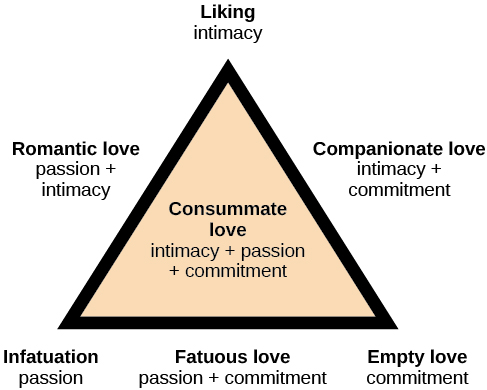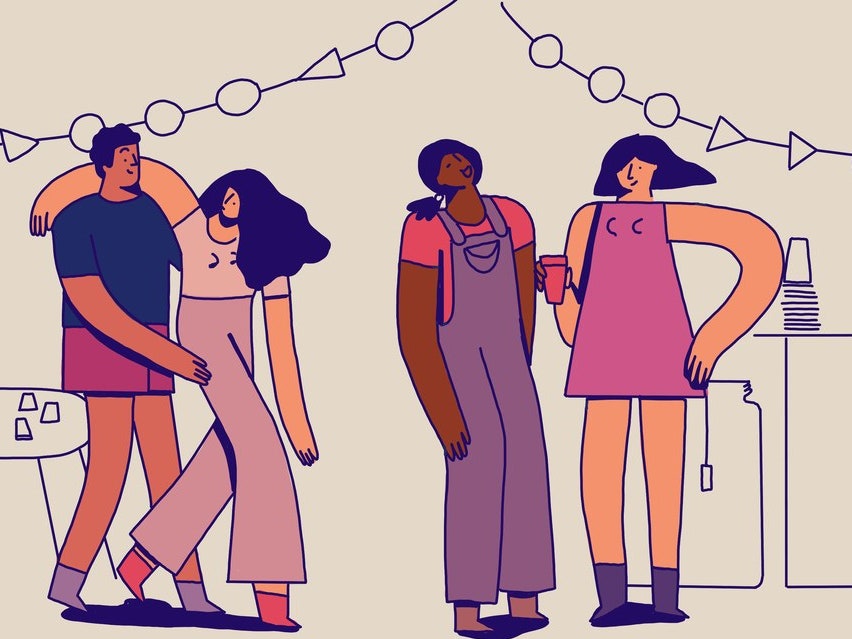
A situationship is a romantic liaison that’s undefined. It’s a relationship label that’s become common in modern culture, where people are placing more importance on freedom and personal growth. While situationships can work in the short term and under specific conditions, they can harm us in the long run. Find out how to evaluate whether it’s the right type of connection for you and the impact it can have on your life if you decide to move forward. (Estimated reading time: 7 minutes)
“Our relationships live in the space between us which is sacred.”
— Martin Buber
Modern-day relationships revolve around the total freedom of individuals. We want free reign in choosing our partners and the kind of relationships that we have with them. Claiming this right empowers and encourages us to be leaders in our own lives.
Unlike the past, when intimate unions were defined by tradition and necessity, coupledom today is about choice and pleasure.
As a culture, our priorities have shifted. We now place importance on gaining self-knowledge and developing as individuals. That’s why we prefer to marry or commit later in life or find less structured relationships that do not box us in and give us a major case of FOMO.
This trend has spawned all kinds of status labels that fall into the relationship gray area. It’s no longer as simple as being “single,” “in a relationship,” or “married.” Modern society is different, and deviating from traditional coupledom is no longer frowned upon.
One of the new labels is “friends with benefits,” a consensual physical relationship that involves no romance or commitment. Non-emotional bonds are nothing new – they date back as far as when working girls made a living in brothels and concubines appeased the appetites of emperors in exchange for security and comfort.
Another more recent phenomenon is situational relationships, or “situationships.” Less than a committed relationship, but more than just a casual encounter or connection just to fulfill one’s carnal desires, a situationship is a romantic liaison that is undefined and unlabeled.
Sometimes a situationship is a transitional period when people are getting to know each other. When no steps are taken to move it forward into a deeper commitment, it stagnates and stays in relationship no man’s land.
As attitudes become more casual and people become commodified by dating apps, transient and undefined has become more acceptable, especially when kept on the down-low.
But is withholding ourselves from having a full-fledged relationship serve us in the long run? Can situationships substitute the love, safety, and intimacy that comes from a committed bond?
Built for connections: understanding different relationship dynamics

From an evolutionary perspective, humans form relationships with others to meet our mental and emotional needs and fulfill our quest for survival. As social beings, we have an inherent desire to connect and build bonds with those we like and trust.
When closely connected to someone else, it’s hard for the average person to dissociate from their feelings. We’re naturally prone to engage emotionally – we’re wired to go deeper. This is confirmed by the works of psychologist Robert Sternberg who created the “triangular theory of love.”
According to Sternberg’s theory, we experience different degrees of intimacy, passion, and commitment at any given moment.

- Intimacy: feelings of connectedness and closeness.
- Passion: intense desires related to romance and physical attraction.
- Commitment: a decision to stay with someone and move towards common goals.
These three components interact to form different kinds of love experiences: friendship, infatuation, empty love (a committed relationship without intimacy or passion), romantic love, companionate love (an intimate non-passionate love), fatuous love (a relationship where intimacy and passion are present, but liking is not), and consummate where all three ingredients are present.
Dr. Sternberg notes that the amount needed for each component varies from person to person and couple to couple, but an ideal romantic connection should have all three.
Consummate love, which has intimacy, passion, and commitment, requires more effort and is harder to maintain. Steinberg writes that love is a verb and that without expression and action, passion is lost, and love may transform into the companionate type.
Different strokes for different folks: why pseudo-relationships appeal to some

Situationships are a byproduct of both the social media-hooked generations focused on image and the hook-up culture that permeates the dating landscape, according to Marianne Dainton, Ph.D., a professor specializing in interpersonal communication.
In an article, she said that having a public, committed relationship creates a sense of expectations – a breakup could be perceived as a personal failure and a loss of status. Having a connection where that risk is not present is ideal for someone who is status-conscious.
People in situationships get to have the relationship cake and eat it too. They don’t mind the sporadic meetings, superficiality, lack of plans, and not experiencing the full range of emotions present in traditional romantic connections.
The ambiguity and the unfettered lifestyle are the greatest benefits of a situationship. It may temporarily work in certain situations, like phases where we want to focus on our careers and don’t have the wherewithal to devote our energies to building a relationship, or when we’re young and want to explore what’s out there.
In both cases, the person makes the conscious decision for their personal growth and expansion, protects themselves and the other person by setting boundaries and consensual expectations, and eventually desires to find a more substantial relationship that feeds them.
According to love experts, situationships are not sustainable in the long run because of how we function. This tacit agreement of seeing each other in some capacity but not ever having the “where is this going?” conversation because we want to leave the door open for other opportunities is detrimental to our emotional wellbeing.
It’s human nature to want something defined. At some point, we want to know where things are going because we crave progress, and the absence of desire is a sign of deeper unresolved issues that we don’t want to address.
The folly of label-less bonds: understanding the cost of situationships

Everyone should have the freedom to be in whatever type of relationship they want—but they should do it with their eyes wide open, knowing full well what they’re getting themselves into and how it could impact their wellbeing.
I have never been an advocate for relationships with blurry parameters because it doesn’t align with my ethics and my emotional nature. I see them as going against the sanctity and beauty of a romantic connection based on mutual love, respect, and friendship.
To me, it’s like consuming junk food and hoping that it will nourish you in ways that only fresh and natural food can. It’s a path usually taken by those who don’t want to do the emotional heavy lifting a relationship requires but still want instant gratification from the first blush of love.
Yet, that avoidance can hurt us in the long run. Here are five reasons why I believe that situationships are unhealthy:
1. There’s a big opportunity cost: When you stay in a situationship you’re forgoing other options in your life. All the effort, time, and energy you put into that person could be invested in someone who wants a committed relationship with you. In other words, it keeps you away from being with the potential love of your life who will treat you with respect. You could be directing that energy to your career, passion projects, or contributing to society.
2. You’re missing out on real happiness: According to a Cornell University study, people in steady relationships are generally happier than those who are in casual ones, and the stronger the commitment, the higher the sense of wellbeing of the partners. A committed relationship provides a safe space for us to open up and be vulnerable with our partners. This can bring those feelings of warmth, comfort, and joy that are often associated with happiness.
3. It damages your self-worth: Staying in pseudo-relationships can harm our mental health. Someone who wants the relationship to move forward will experience a sense of loneliness and worthlessness because of the lack of emotional attachment. They might ask themselves questions like, “What’s wrong with me?” and “Am I not good enough for them?” Deep down, they know that they’re selling themselves short. We must love and respect ourselves enough to walk away when we’re compromising on our dreams of a real connection.
4. It could hurt your reputation: Most people in situationships either keep it a secret or don’t speak very openly about it. Deep down, they aren’t proud of being in one because it isn’t the type of partnership that society favors. I’m not saying that you should care about what others think (I’m the last one to judge), but to let you know that there are people out there who will negatively perceive you if they know that you’re in situationships, especially in certain cultures.
5. It affects other areas of your life: Situationships can cause a lot of emotional ups and downs. While many people believe that they can compartmentalize their personal life so that it doesn’t impact other areas when the reality is that’s just not possible. The dissatisfaction, uncertainty, and lack of fulfillment we experience in our intimate connections will always bleed into other aspects. Anxiety negatively impacts our bodies; it prevents us from being fully engaged in our work and can cause us to be rude towards others.
Accepting situationships is akin to accepting breadcrumbs. We make do with tiny morsels of affection and interest, like occasional text messages or phone calls. But, as humans, we’re built for connection and love, and breadcrumbs are not enough. We should accept nothing less than a banquet where we can share a feast with someone who deserves our attention and trust.
All my best on your journey,
Seline

Question for you: What are your thoughts on situationships? Do you think it’s possible for someone to be happy in one?
Did you like this post? Sign up below, and I’ll send you more awesome posts like this every week.

Have Your Say